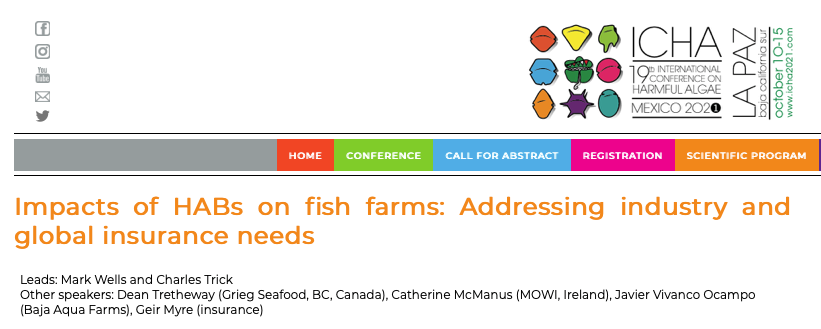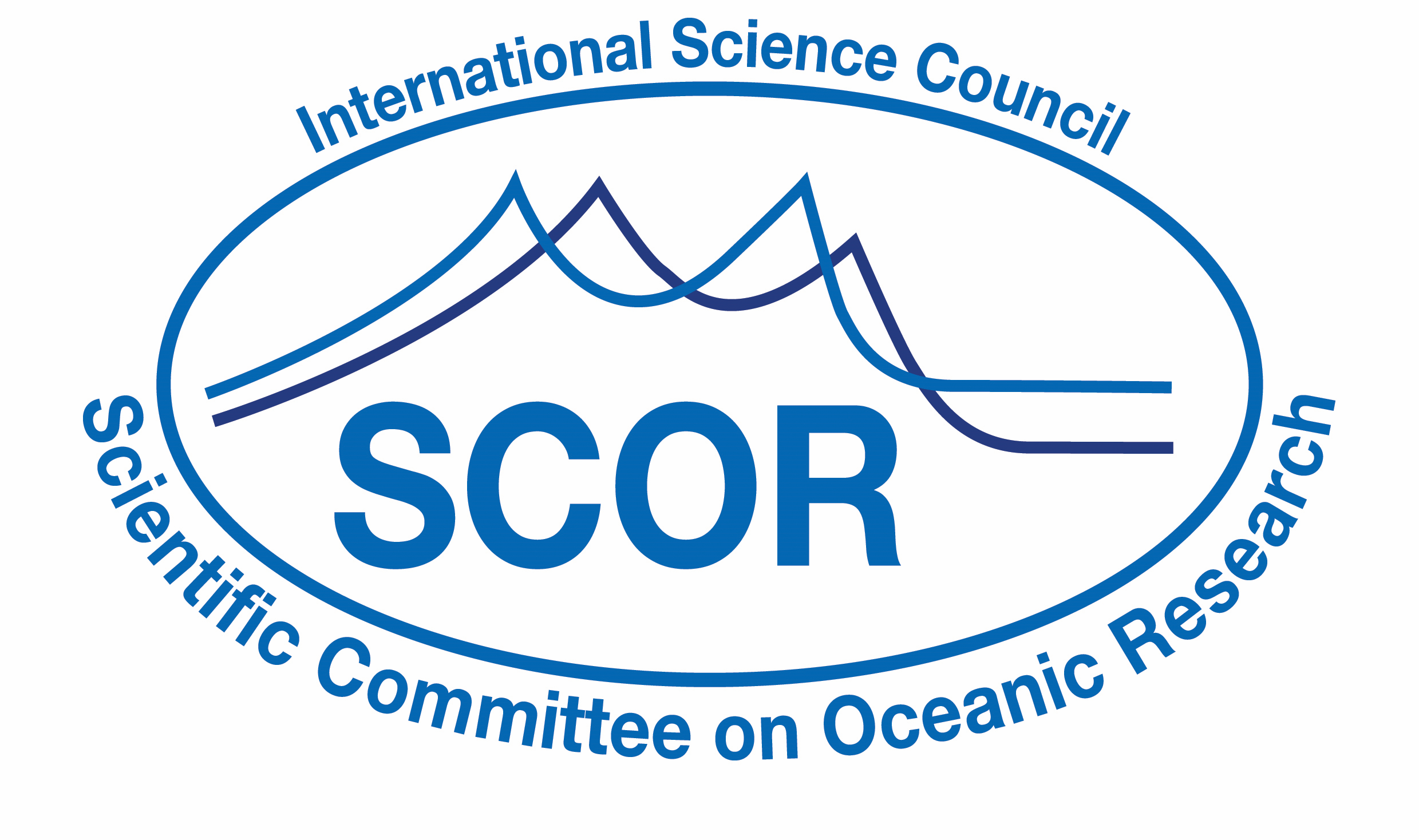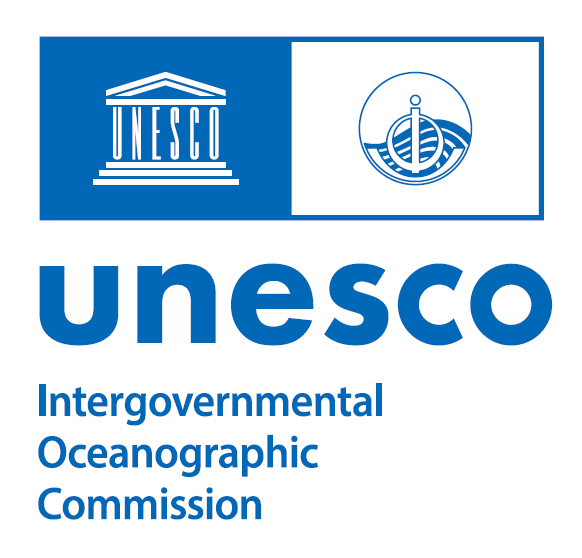PROJECT TITLE: Addressing industry and global insurance needs: impacts of HABs on fish farms
Type: ICHA19, International Meeting Special Session
Timeframe: ICHA19 meeting, October 10-14, 2021; session on Oct 12, 14:00-16:00 La Paz time
Principal Investigator name, title: Vera Trainer, Keith Davidson
Address: NOAA, SAMS
E-mail: This email address is being protected from spambots. You need JavaScript enabled to view it.
Home page URL: (if applicable)
Other key persons (name, title and institution): Mark Wells (School of Marine Science, University of Maine, Orono, ME 04469, USA) and Charles Trick (Department of Biology, The University of Saskatchewan, Saskatoon, SK Canada)
Objectives: A new compendium of case studies on the economic impacts of Harmful Algal Blooms (HABs) on wild and recreational fisheries and aquaculture has recently been published by the North Pacific Marine Science Organization (PICES). Based on a co-sponsored PICES and IOC-SCOR GlobalHAB Workshop on Evaluating, Reducing and Mitigating the Cost of Harmful Algal Blooms, this report compiles case studies on the economic impacts of HABs on farmed salmon and other fisheries, with the aim to guide future research and management decisions as to mitigate the risks associated with these natural events.
The report shows that HAB-related losses faced by insurers of aquaculture operations make up to 45% of insurance claims – and they are larger than any storm that insurers have ever faced.
Despite the several research initiatives of the last two decades, the lack of data, appropriate and standardized protocols, and the dearth of peer-reviewed studies hamper efforts to quantify the societal costs of HAB events, which are increasingly frequent, intense, and long-lasting. As of today, most countries have neither conducted economic analyses of HABs nor collected data that can be used to generate reliable quantitative estimates of net economic losses and impacts. As a consequence, it is hard to develop effective strategies to prevent, control and mitigate HAB events.
In this ICHA2021 side session we will be led in a discussion by insurance industry and on-the-ground aquaculture industry representatives to discuss future research directions and how to work together to address:
- impacts of HABs on aquaculture
- risk thresholds
- early warning
- mitigation cost benefits


